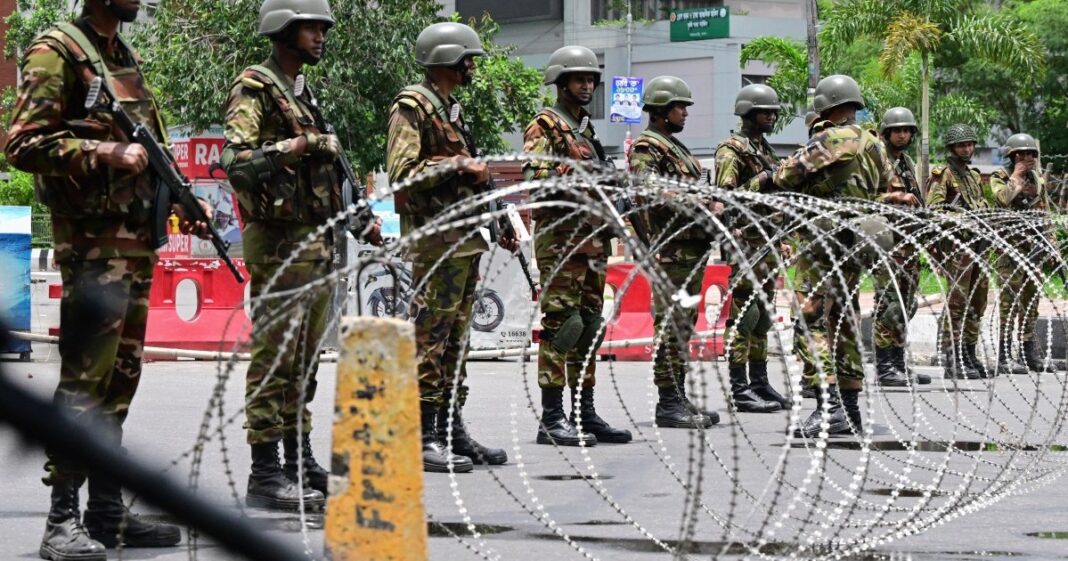Bangladesh has enjoyed a shaky calm amid a curfew as protesters set the government a 48-hour deadline to meet their new demands.
Widespread disruption of telecoms persisted on Monday, a day after the Supreme Court scrapped most of the controversial job quotas that led to the rallies.
Clashes between student protesters and security forces killed a reported 163 people across the South Asian nation after the High Court last month revived legislation – revoked by Prime Minister Sheikh Hasina’s government in 2018 – reserving 56 percent of valued government jobs for groups such as families of freedom fighters, women, and people from underdeveloped areas.
On Sunday, however, the Supreme Court ordered that 93 percent of state jobs should be allocated on the basis of merit.
“We will continue our protests until the government publishes the verdict in the gazette,” said a Dhaka University student, speaking on condition of anonymity, in a reference to the government’s official record of decisions.
Student protesters have also demanded the release of detained protest leaders, the lifting of the curfew, and the reopening of universities shut since Wednesday.
They have given the government 48 hours to act, but it was not immediately clear what would happen afterwards.
There were no reports of violence or protests on Monday and media said the curfew would be relaxed for three hours in the afternoon, extended from two hours the previous day, so that people could buy essentials.
Army tanks were seen stationed at several places in the streets of Dhaka, the capital, while armed security patrols directed the few motorists who ventured out.
Department stores said they were running out of stocks because of supply disruptions following the curbs. The suspension of internet services also affected travel plans and essential services.
Thousands were injured in last week’s protests as security forces used tear gas, rubber bullets, and sound grenades to scatter the demonstrators.
Experts have blamed the unrest on stagnant job growth in the private sector and high rates of youth unemployment that have made government jobs, with their regular wage hikes and other privileges, more attractive.
Hasina, who was sworn in for a fourth consecutive term this year, has been accused of authoritarianism, human rights violations, and crackdowns on free speech and dissent in the past – charges her government denies.







